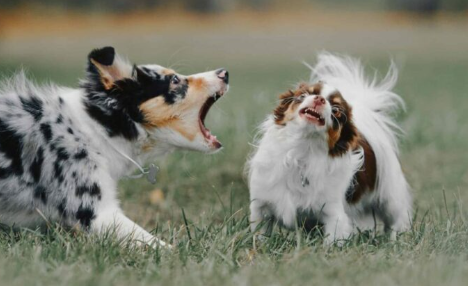My Puppy Keeps Biting Me Aggressively A Comprehensive Guide

Introduction
Bringing home a new puppy is an exciting experience, but it comes with its challenges. One common issue that many new puppy owners face is aggressive biting. If you find yourself asking, “Why does my puppy keeps biting me aggressively?” you’re not alone. In this article, we’ll explore the reasons behind this behavior and provide effective strategies to curb it.
Understanding the Root Causes of Aggressive My Puppy Keeps Biting Me Aggressively
My Puppy Keeps Biting Me Aggressively can stem from various reasons, such as teething, playfulness, or a lack of socialization. To address this behavior, it’s crucial to identify the root cause. Teething puppies often use biting as a way to alleviate discomfort, while playful biting may result from excess energy. By understanding why your puppy is exhibiting aggressive biting, you can tailor your approach to better manage the behavior. Learn more
Teething Woes: Helping Your Puppy Cope
Puppies, like human babies, go through a teething phase that can be uncomfortable. When teething, puppies instinctively chew to soothe their sore gums. Provide appropriate chew toys to redirect their biting behavior and offer relief. This not only addresses the cause but also protects your hands and belongings from aggressive biting.
Socialization: A Crucial Aspect of Biting Prevention
Aggressive biting can also be a result of insufficient socialization. Puppies need exposure to various people, environments, and other dogs to develop proper social skills. Engage your puppy in positive interactions with different stimuli to reduce fear-based aggression. A well-socialized puppy is less likely to resort to aggressive biting as a coping mechanism. Read more
Positive Reinforcement Training for Biting Issues
Training is paramount when dealing with aggressive puppy biting. Utilize positive reinforcement techniques to reward good behavior and discourage biting. When your puppy exhibits gentle behavior, provide treats and praise. Consistency is key; over time, your puppy will associate non-aggressive behavior with positive outcomes.
Conclusion
Addressing my puppy keeps biting me aggressively biting requires patience, understanding, and consistent training. By identifying the root causes and implementing appropriate strategies, you can foster a well-behaved and non-aggressive companion. Remember, the key to success lies in a combination of teething relief, socialization, and positive reinforcement training. If you’re wondering, “Why does my puppy keep biting me aggressively?” – rest assured, with the right approach, you can enjoy a harmonious relationship with your furry friend.
FAQs
Q1: Why is my puppy biting me aggressively?
A1: Aggressive puppy biting can be attributed to various reasons, including teething discomfort, excess energy, or a lack of socialization. Identifying the specific cause is crucial in developing an effective strategy to curb this behavior.
Q2: How can I tell if my puppy is teething?
A2: Signs of teething in puppies include increased chewing, swollen or red gums, and a preference for soft items. If you notice these symptoms, providing appropriate chew toys and soothing items can help alleviate their discomfort and reduce aggressive biting.
Q3: Is aggressive biting normal during playtime?
A3: Playful biting is a common behavior in puppies, but it’s essential to teach them bite inhibition. Encourage gentle play and use positive reinforcement to reward non-aggressive behavior. This helps them understand acceptable limits during playtime.
Q4: Can socialization help reduce aggressive biting?
A4: Yes, proper socialization plays a vital role in curbing aggressive puppy biting. Expose your puppy to various people, environments, and other dogs to build their confidence and reduce fear-based aggression. A well-socialized puppy is less likely to resort to aggressive biting as a means of defense.
Q5: How can positive reinforcement training help with biting issues?
A5: Positive reinforcement involves rewarding desired behavior with treats, praise, or toys. When your puppy exhibits gentle behavior instead of aggressive biting, immediately reward them. Consistent positive reinforcement creates an association between good behavior and positive outcomes, facilitating the learning process.
Q6: Are there specific training techniques to stop aggressive biting?
A6: Effective training techniques include redirecting biting behavior to appropriate chew toys, using a firm “no” to discourage biting, and implementing time-outs when the behavior persists. Consistency and patience are key in reinforcing positive habits and reducing aggressive biting.
Q7: Should I be concerned if my puppy’s biting seems overly aggressive?
A7: If your puppy’s biting appears overly aggressive or is causing harm, consult with a professional dog trainer or veterinarian. Excessive aggression may be a sign of underlying issues that require expert guidance to address effectively.
Q8: How long does it take to see improvements in aggressive biting behavior?
A8: The timeline for improvement varies among puppies. Consistency in training, positive reinforcement, and addressing the root causes are crucial. Some puppies may show progress within a few weeks, while others may take longer. Be patient and stay committed to the training process.



